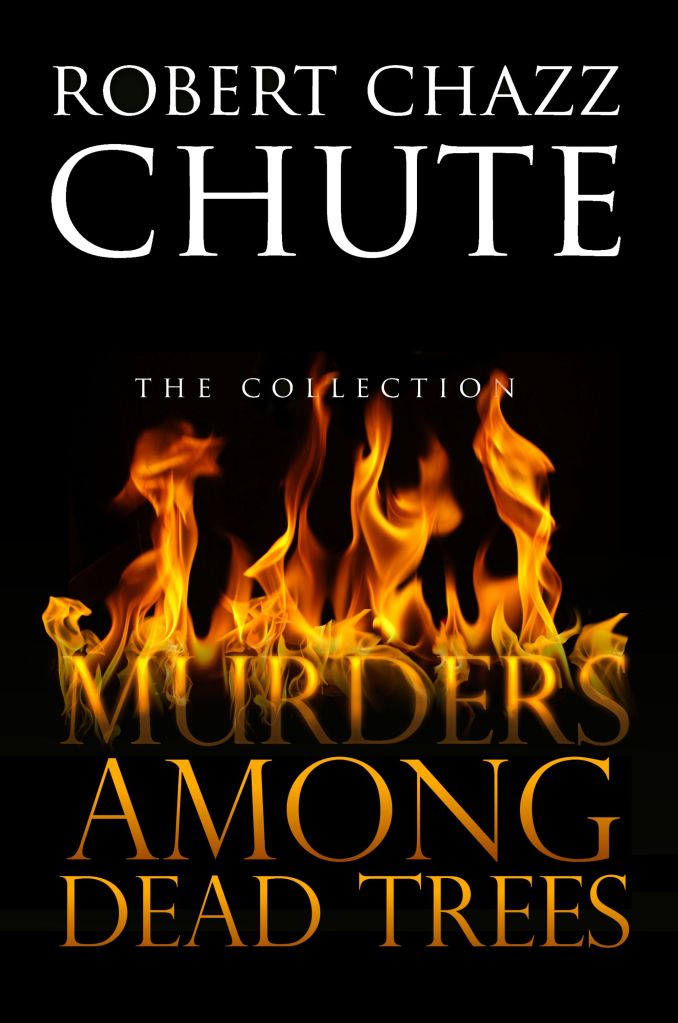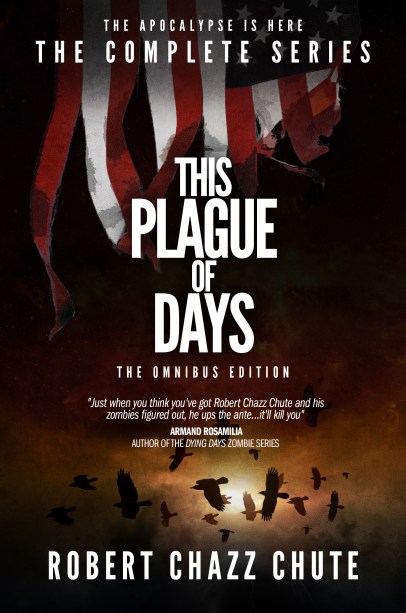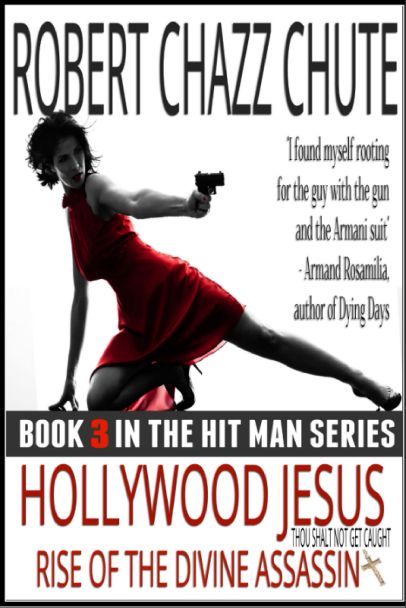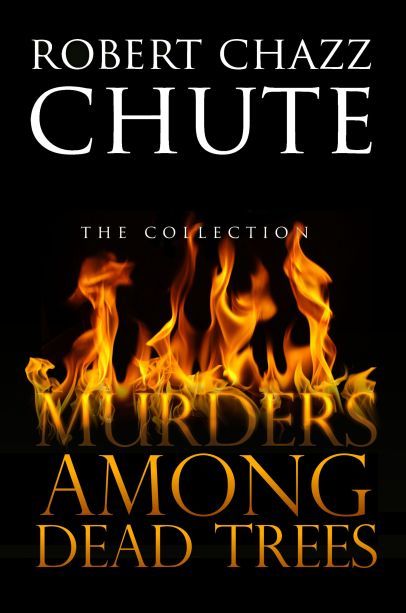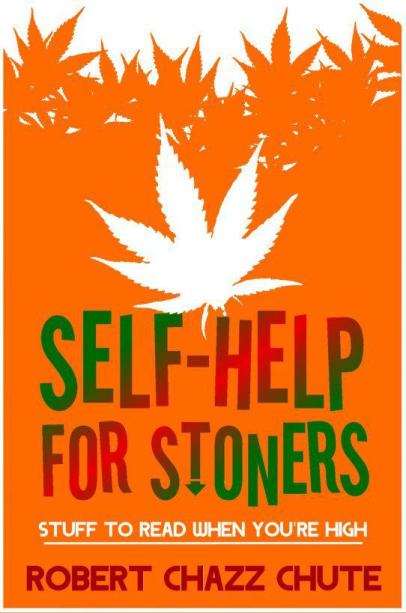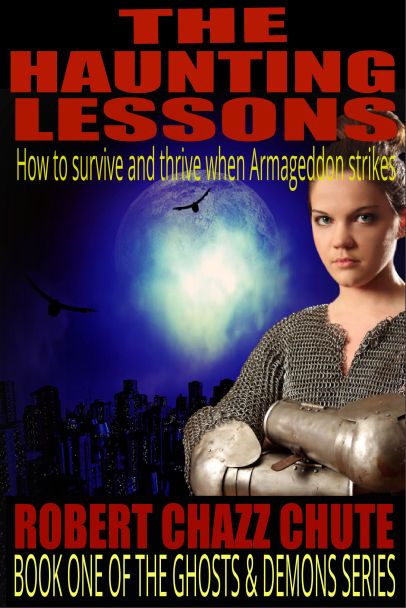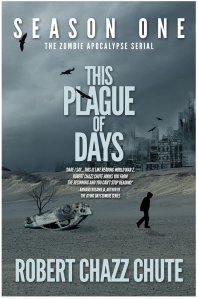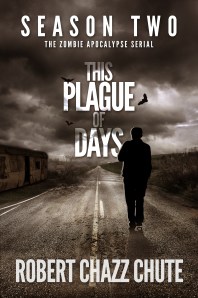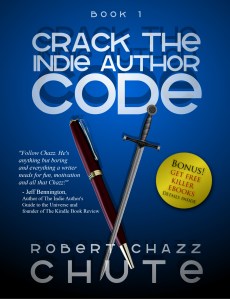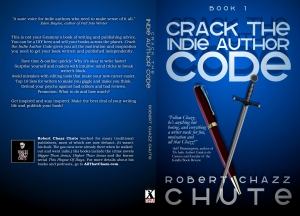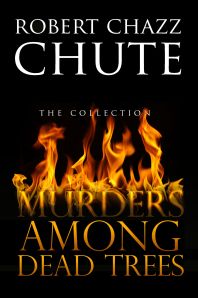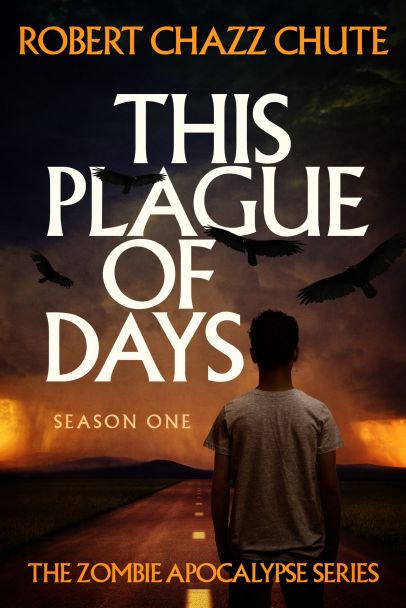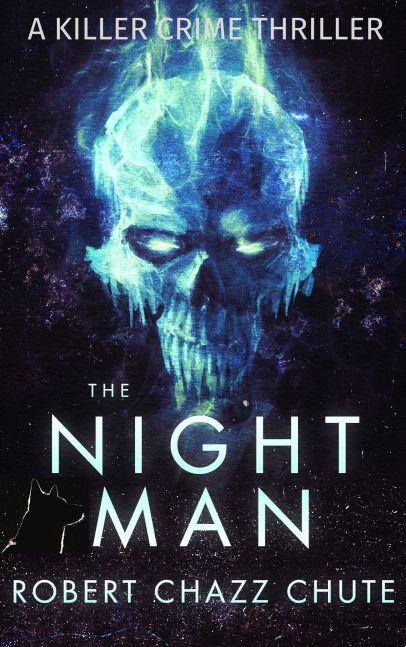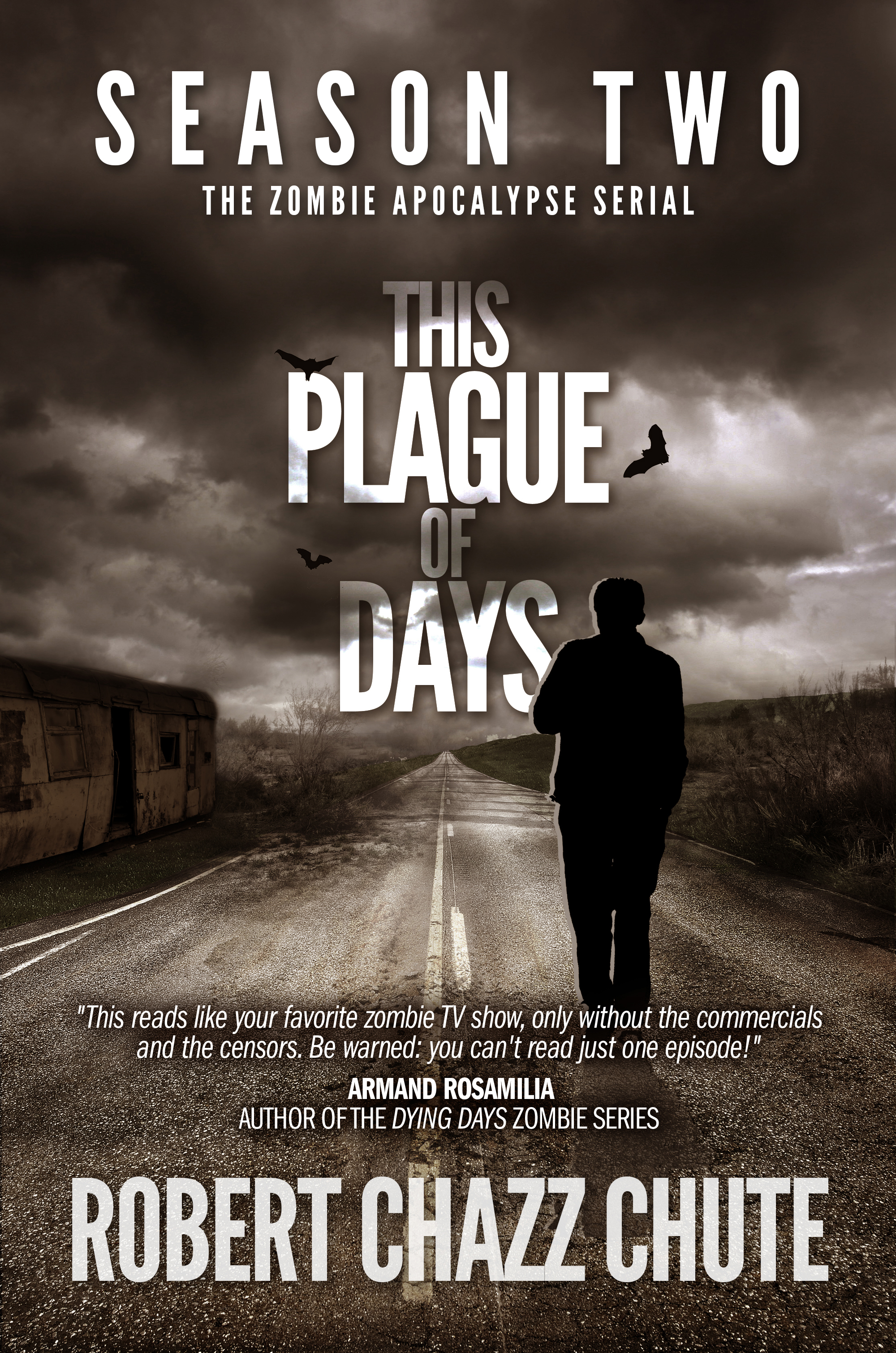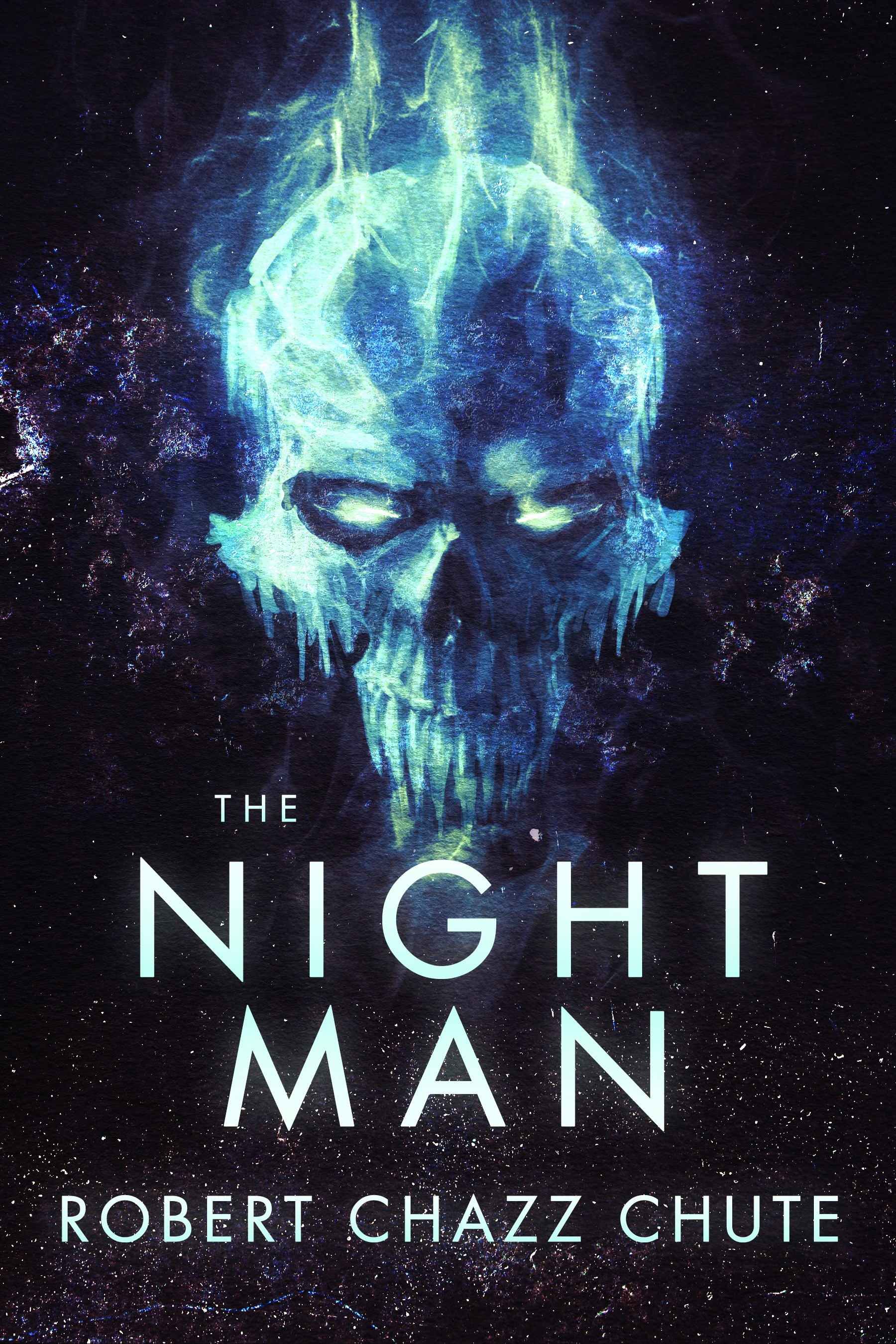This week, I’m making This Plague of Days a case study for those interested in drilling deep. This will be a series of blog posts about strategies, platforms and book marketing: what worked, what hasn’t worked, what won’t and what might. I hope it helps you to sell your books, if only by avoiding my errors.
Topics will include various format releases, selling in different ways, pricing and publicity. You’ll find out how This Plague of Days became a bestseller (in its teeny-tiny category) and the ways in which I’ve failed miserably. I’ll also hit on how my strategy is changing for the conclusion of This Plague of Days. Season 3 comes out this spring. I’m always experimenting, looking for new and different ways to reach readers and make them happy. Sometimes what I thought was the wide road to glory turned into a goat path into a dead-end. As always, I’ll be honest about it.
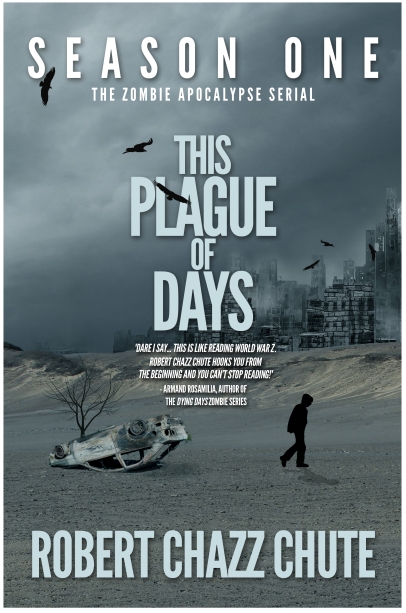 On sale until Feb. 1, 2014 for just $2.99. I mean, c’mon!
On sale until Feb. 1, 2014 for just $2.99. I mean, c’mon!
HOW I LAUNCHED THE SERIAL
My strategy for launching This Plague of Days, Season One was to put the whole ebook out first. I waited a week. The sky didn’t shatter with raging need for my latest contribution to suspense and horror literature. Then, over the next five weeks, I released the book broken into episodes as a serial. Each episode came one week apart at 99 cents each.
Each section ended on a cliffhanger so readers were given a choice:
Wait another week to find out what happens next, come back to Amazon and download the next episode. (0.99 x 5 = $4.95)
Or, preferably: forget all that nonsense and just buy the book for less money than it cost to get all the episodes piecemeal. I sold the ebooks at $3.99 with pulsing price dips to $2.99 plus a couple of promotional giveaways at $0.00. (More on that in another post, but hey, Seasons One and Two are at $2.99 until Feb 1. Take a hint and have some fun. It’s too cold to go outside so you might as well read.)
Print has been so little of my income in the past that creating the paperback was a low priority. I did that last. (That’s changing, as you’ll soon see in a post coming later this week.)
HOW TO SERIALIZE CORRECTLY
My nastiest reviewer noted with dismay that I’d written it like a television serial (as if I’d somehow done so by accident.) Most people actually liked the format and appreciated its quirks as added value.
That said, serialization doesn’t work if you break the narrative the wrong way. Take an ongoing television drama. Let’s say, The Walking Dead or House of Cards. Cliffhangers, wit, surprises and reversals are the gears of the engine that give a serial forward momentum. Each transition should scream, “That’s not the end you expected. Now turn the page for more!”
Not all books are suited to the serial format and it’s not just about taking any book, breaking it apart and selling off the chunks. It’s about adding value to the reader and certainly not making more cash off selling episodes at 99 cents. For get-rich-quick ideas, boy, are you on the wrong blog!
ABOUT ADDED VALUE AND STANDING OUT
With an autistic hero who mostly doesn’t speak and a story that spans Europe, America and Canada, my story is unusual. You meet a lot of characters but they don’t meet each other for a long time, if at all. The plagues start off based in reality and later supernatural elements à la The Stand develop as the Sutr virus evolves. I did weird things with how I laid the saga out, too.
The Table of Contents comprises a long, dark poem with clues to what’s coming. Each episode begins with “Notes from The Last Cafe”, which adds to the intrigue. That mystery is not actually solved until late in Season 3. Also, Seasons One and Two contain a secret. The first three readers to guess it correctly will get characters named after them. I’m receiving guesses every week, but so far, no one has won. (Check out ThisPlagueOfDays.com for more on that.)
THE PROS OF SERIALIZATION
1. My also-boughts proliferated on Amazon so customers saw the work of my brilliant graphic designer, Kit Foster, pepper those lists. They didn’t just see one cover. They saw six, each different, but in keeping with the tone and theme of each season. Repetition and increased exposure got attention to the book it wouldn’t have caught otherwise. Here’s what that looked like:
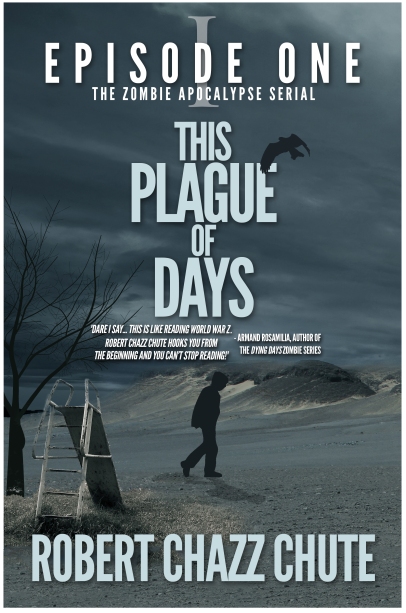
- The Also-boughts (below) harnessed the power of repetition in advertising.

2. Best of all, readers who dig This Plague of Days went ahead and bought the entire season immediately. Some even took Season One, Episode One as a big, cheap sample and went back to buy both seasons in their entirety.
An important detail that’s a pro and a con
Those people who were tepid on an autistic kid in the zombie apocalypse tended to just try Episode One. Each episode ranges from 15- 25,000 words, so they got a generous read. The zombies don’t actually show up for a while and they aren’t even “true” zombies in the Romero sense. If readers didn’t care for the pace at which I built the tension, early instalments took the hits of less-than-entranced reviews and readers dropped away.
The majority loved it and went on to leave stellar reviews on each season. This somewhat inoculated the books from negative ratings because the non-enthused bailed out. Serialization gave them that easy option.
THE CONS
1. Serials are a harder sell. Some people hate serials and won’t buy them. Others click indiscriminately and then will rank you lower even if they like the book. (Yes, I know that’s crazy, but I’ve seen it. Fortunately, those few are outliers.)
2. Despite going to great lengths to explain and differentiate between seasons and episodes with covers and sales copy warnings, some readers still got confused about what they were buying in what sequence. Each cover was clearly labelled and to some, that didn’t matter. (Too quick to click the one-click buy, I guess.) That got me a couple of bad reviews. I explained to those reviewers in the comment thread of their review that anyone who buys something in error can easily return it to Amazon for a full refund. Still, those negative reviews remain.
3. Episodes that sell for 99 cents make next to no money. Somebody’s going to object to that, but the math on my sales reports says it’s true. I’d have to sell way more episodes to equal the sale of one book/season. In my quest to find 1,000 true fans, this is one of the trade-offs along the way to helping us find each other. I don’t resent the journey.
4. Maybe it’s my sense of price resistance, but I don’t see charging more than 99 cents per episode. You could give less in word count per episode, but you also have to ask yourself, how much and how often do you want to format and upload files? Drag it out with more episodes and other costs rise higher.
5. I can see by my sales stats that The Law of Diminishing Returns has kicked in with respect to sales of each episode. With so many positive reviews on Season One and Two, it makes less sense for me to serialize now. As I move away from serialization in Season 3, those who liked serialization might ding me for it (even though, with the way I priced it, that’s irrational.)
6. Serialization that’s not hooked up to Amazon’s auto-delivery system is problematic. The customer has to remember to come back each week and download the new episode. I did apply to Amazon to publish this serial with them. I never heard back. Had they gone for it, you might have heard of me before today.
7. Now that my Amazon sales page is populated with all those episodes from Seasons One and Two, it looks too busy. I’d rather just display the seasons (and eventually The Complete This Plague of Days) so it’s easy for readers to zero in on those books and click buy. How long must I wait before I can clean it up? I can’t simply unpublish the episodes in case someone’s still thinking of getting around to finishing the serial episode by episode? Do I wait a year? Two? Three?
CONCLUSIONS
You’ll note that the Pro column has two entries and I list seven disadvantages. I wish the analysis were that simple.
In my final analysis — not necessarily yours — the disadvantages I list are the cost of getting the book known. In this case, any damage was mitigated by moderate success. Serialization helped readers and hardcore fans find This Plague of Days (and in some cases, my other books.) Therefore, the sacrifice of getting roughly 30 cents on the sale of episodes is the cost of experimentation. For advertising so well in the also-boughts on Amazon, it was worth it. Season One has 72 reviews so far. Season Two has 31. That’s much more attention than my other books got. (Shocking because Murders Among Dead Trees is genius, dammit! And only 99 cents until February 1, 2014. I’m trawling for reviews from the bargain bin so…well, you know. Check it out, if only to read my favorite three-star review ever.)
Those two pros carry more tonnage than the feather-light cons. I don’t regret serializing Seasons One and Two. Without serialization, I wouldn’t have those problems. Some problems are the good kind to have. Without serialization, I’d probably be (even more!) anonymous in the literary landscape.
That’s why marketing Season 3 will be interesting. The revolution will not be serialized. Stay tuned.
~ This is a case study which may or may not apply to you. I’m not telling anyone what they should do. This is just my experience and my reasoning on serialization. Next post: Amazon, Bookbub and all those other platforms.
Filed under: author platform, Publicity & Promotion, publishing, self-publishing, writing tips, advertising, also boughts, Amazon, autism, book marketing, books, ebooks, fiction, horror, Murders Among Dead Trees, publishing, Robert Chazz Chute, serial, Serialization, This Plague of Days, vampires, zombies
